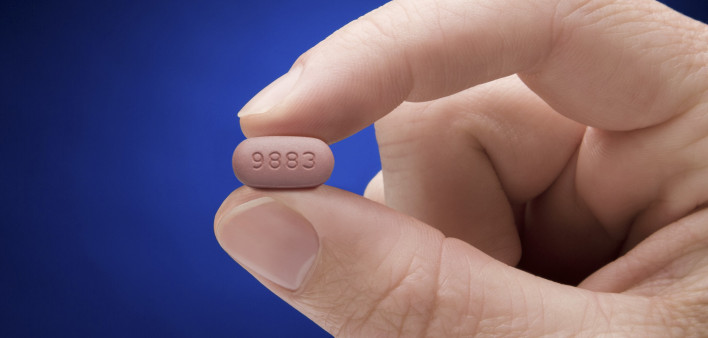Gilead Sciences has released 96-week results from a double-blinded study comparing Biktarvy (bictegravir/emtricitabine/tenofovir alafenamide) with an HIV regimen of Triumeq (dolutegravir/abacavir/lamivudine).
Study 1489 is an ongoing trial evaluating the safety and efficacy of Biktarvy. A total of 629 HIV-positive adults who had not yet been treated with antiretrovirals were randomized evenly to receive Biktarvy or Triumeq on a blinded basis, meaning the participants would not know which regimen they were receiving. The study will remain blinded through the 144-week point.
Ninety-six weeks into the study, 87.9 percent (276 of 314) of those who received Biktarvy and 89.8 percent (283 of 315) of those who received Triumeq had a viral load below 50. These rates were similar enough for the investigators to conclude that Biktarvy is noninferior to, or as effective as, Triumeq.
Among the participants whose virus was analyzed for drug resistance, none who received Biktarvy developed resistance to its components during the trial.
None of the participants who received Biktarvy discontinued treatment because of kidney-related health problems, nor did anyone in this group develop the kidney conditions known as proximal renal tubulopathy or Fanconi syndrome.
Among those in the Biktarvy and Triumeq groups, the median decline in estimated glomerular filtration rate (eGFR, an indication of kidney function) between the start of the study and the 96-week point was a respective 7.8 milliliters per minute and 9.6 ml per minute. The difference between these two rates was not statistically significant, meaning it may have been driven by chance. Median changes in proteinuria (abnormal amounts of protein in the urine, which may indicate kidney damage) were also similar between the two groups.
The average decline in bone mineral density (BMD) between the study’s outset and the 96-week mark was also statistically similar between the two groups. Those in the Biktarvy and Triumeq groups experienced a respective 0.71 percent and 0.22 percent decline in BMD at the spine and a respective 1.13 percent and 1.26 percent decline in BMD at the hip.
Biktarvy was well tolerated; none of the participants who received the regimen discontinued treatment because of adverse events. Five people (2 percent) who received Triumeq stopped treatment for such reasons.
The most commonly reported adverse health events among those receiving Biktarvy and Triumeq were nausea (11 percent versus 24 percent), diarrhea (15 percent versus 16 percent) and headache (13 percent versus 16 percent).
To read a press release about the study, click here.







Comments
Comments